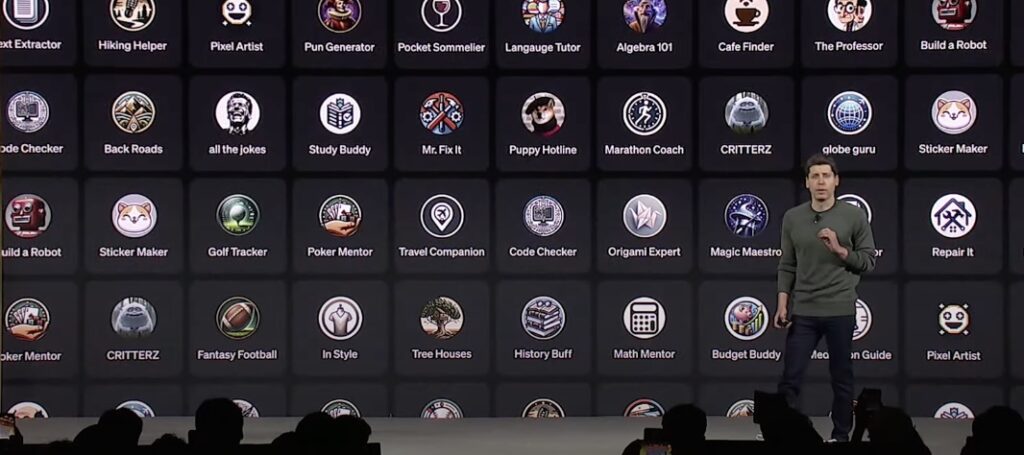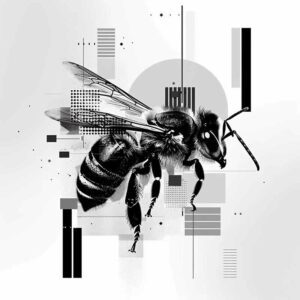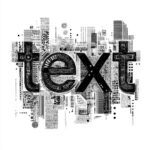What is a Custom GPT?
During its first inaugural DevDay, OpenAI revealed and demonstrated custom GPTs, a platform that allows individuals and businesses to create custom versions of their ChatGPT model. In a nutshell, custom GPTs allow you to create your own pre-prompted chatbots that are purpose built with your instructions and even data.
Previously, users could extend ChatGPT’s capabilities with plugins. However, OpenAI has now expanded upon this idea, allowing for more complex customizations. These custom Generative Pre-trained Transformers (GPTs) can be equipped with specific instructions, additional knowledge, and a diverse range of skills to serve unique purposes. Imagine specific custom instructions that can be summoned for common tasks you use ChatGPT for daily.
Custom GPT Examples
The real beauty lies in the ability for any user to tailor a version of ChatGPT to their needs and creativity, potentially transforming every field where information, interaction, and personalization play a key role. These examples only scratch the surface of what’s possible with custom GPTs.
GPT as an Educational Tool
Picture a GPT that’s been customized to make learning math not just informative but genuinely fun. This GPT could gamify arithmetic, turning multiplication tables into a space adventure where each correct answer propels a rocket ship further into the cosmos. For older students, a GPT might take on the persona of a friendly tutor, guiding them through algebraic formulas with step-by-step explanations and personalized feedback, adapting to the student’s learning pace. It could even simulate scientific experiments, allowing students to understand complex concepts through virtual interaction and visualization. Here are some examples of theoretical GPTs that would benefit an educator or a student.
- Language Learning GPT: This GPT would be specialized in teaching and practicing different languages. It could simulate conversation in various languages, correct grammar and pronunciation, and provide cultural insights, making it an interactive tool for language learners.
- History Explorer GPT: Designed to bring history lessons to life, this GPT would offer detailed historical narratives, answer questions about specific events or periods, and even simulate historical figures for students to interact with. It could help in creating immersive learning experiences about different eras and cultures.
- Science Tutor GPT: A GPT focused on explaining scientific concepts, conducting virtual experiments, and solving complex problems. It could cover a wide range of subjects from physics to biology, offering personalized assistance and explanations to help students understand challenging topics.
- Mathematics Solver GPT: This GPT would assist students in understanding mathematical concepts, solving equations, and visualizing complex problems. It could adapt to different learning levels, providing step-by-step guidance and explanations for various math problems, from basic arithmetic to advanced calculus.
- Creative Writing Assistant GPT: Aimed at enhancing writing skills, this GPT would offer prompts, critique writing, suggest improvements, and teach storytelling techniques. It could be used to inspire creativity in students, help them develop their writing style, and provide feedback on their work.
GPT for Marketing and Brand Management
Imagine a GPT that has digested a company’s entire marketing playbook. It knows the brand’s voice, its key messages, and its audience. Such a GPT could assist marketing teams by generating first-draft content for campaigns, ensuring that all communications are on-brand. It could produce anything from social media posts to full-fledged marketing copy, significantly reducing the time and effort required to launch new marketing initiatives. Here are five examples of potential GPTs that might be created and customized for your marketing efforts.
- Brand Voice Consistency GPT: This GPT would be trained on a specific company’s brand guidelines, tone, and messaging strategy. It could generate content that consistently reflects the brand’s unique voice across various platforms, ensuring that all communications are aligned with the brand identity.
- Social Media Strategy GPT: Specialized in creating effective social media content, this GPT would analyze trends, suggest post ideas, and even draft content for various social media platforms. It could help in strategizing campaigns, increasing engagement, and maintaining a strong online presence.
- Market Research and Analysis GPT: This GPT would focus on gathering and analyzing market data, customer feedback, and competitive insights. It could provide valuable reports and recommendations for marketing strategies, helping brands to stay ahead in their market.
- Customer Engagement and CRM GPT: Designed to enhance customer relationship management, this GPT could personalize customer interactions, respond to inquiries, and manage customer feedback across various channels. It would ensure that customer communications are handled efficiently and in line with the brand’s standards.
- Campaign Planning and Execution GPT: This GPT would assist in planning and executing marketing campaigns. It could generate creative concepts, draft campaign materials, and suggest strategies for different media channels. This tool would be invaluable in ensuring campaigns are cohesive, innovative, and effectively reach the target audience.
GPT for Customer Support
In customer support, a GPT could be a game-changer. Trained on a company’s products, policies, and prior customer interactions, it could provide real-time assistance to customer service representatives or even directly to customers. This GPT could quickly sift through a knowledge base to offer solutions, track and report emerging issues, and ensure that the company’s service level remains consistent and high.
- Multilingual Customer Support GPT: This GPT would be capable of understanding and responding in multiple languages, making it ideal for global customer support. It would provide accurate, context-aware responses to customer inquiries in various languages, ensuring effective communication with a diverse customer base.
- Technical Support GPT: Specialized in handling technical queries, this GPT would be trained on specific product knowledge, troubleshooting steps, and technical documentation. It could assist customers with complex technical issues, guide them through problem-solving processes, and provide detailed technical advice.
- Feedback Analysis and Response GPT: This model would be designed to analyze customer feedback, categorize it for improvement areas, and generate appropriate responses. It could help in managing large volumes of feedback, identifying common issues or trends, and ensuring customers feel heard and valued.
- Chatbot Enhancement GPT: Integrating this GPT with existing chatbot systems would enhance their conversational abilities, making interactions more natural and efficient. It could handle a wide range of queries, provide personalized recommendations, and escalate issues to human agents when necessary.
- Product Information and Recommendation GPT: Aimed at providing detailed product information, this GPT would assist customers in making informed purchasing decisions. It could answer queries about product features, compare different products, and offer recommendations based on customer needs and preferences.
GPT Healthcare Assistant
Healthcare professionals could benefit from a GPT tailored to their specialty. Such a GPT could help decipher medical jargon for patients, provide literature on specific conditions, or guide patients through the pre- and post-operative care instructions. While it would not replace medical advice from professionals, it could serve as an additional resource for information and support. Using AI for healthcare and health-related advice is an area that is still being explored. There are issues related to patient privacy, and accuracy of diagnosis that must be solved before GPTs like this can be used in real-world situations. Here are some examples of GPTs that may aid in healthcare once some of these issues are addressed and ironed out.
- Medical Diagnosis Assistant GPT: This GPT would aid healthcare professionals by providing differential diagnoses based on patient symptoms, medical history, and clinical data. It would analyze complex medical information to suggest potential diagnoses, helping clinicians in decision-making processes.
- Patient Education and Engagement GPT: Designed to enhance patient understanding of their health conditions, this GPT would offer clear, accessible explanations of medical conditions, treatments, and health tips. It could be personalized to each patient’s needs, improving patient engagement and compliance with treatment plans.
- Clinical Research and Data Analysis GPT: This GPT would assist researchers by analyzing large datasets of clinical research, identifying trends, and generating insights. It could accelerate the research process in drug development, epidemiological studies, and healthcare policy planning.
- Mental Health Support GPT: Tailored for mental health applications, this GPT would provide initial counseling support, offer coping strategies, and guide users through therapeutic exercises. While not a replacement for professional care, it could serve as a supplementary tool for those seeking mental health support.
- Medical Documentation and Coding GPT: This application would assist healthcare providers in efficiently managing medical documentation and coding tasks. It could help in generating patient visit summaries, coding diagnoses and procedures accurately, and ensuring compliance with healthcare reporting standards.
Legal and Compliance Training GPT
Law firms and corporate legal departments could use a GPT to train their staff on complex legal concepts, new regulations, or company policies. By engaging in interactive Q&A sessions, users could explore various legal scenarios and receive immediate feedback on their understanding, facilitating a more dynamic learning experience.
- Legal Case Simulation GPT: This GPT would simulate real legal cases, providing law students and trainees with interactive scenarios to apply their knowledge. It could generate case details, evidence, and courtroom dialogues, allowing learners to practice legal analysis and argumentation.
- Compliance Training Assistant GPT: Designed for compliance training, this GPT would create customized training materials and assessments based on an organization’s specific compliance requirements. It could generate training modules, quizzes, and scenarios to educate employees on compliance policies and procedures.
- Legal Ethics and Professional Responsibility GPT: Focused on legal ethics, this GPT would provide guidance and scenarios related to professional responsibility and ethical dilemmas faced by lawyers. It would help law students and legal professionals understand and navigate complex ethical issues.
- Contract Law Training GPT: Tailored for contract law education, this GPT would generate sample contracts, analyze contractual clauses, and offer explanations of legal terms and concepts. It could be a valuable resource for law students and professionals studying contract law.
- Mock Trial Preparation GPT: This GPT would assist in preparing for mock trials and courtroom simulations. It could generate trial scripts, witness statements, and legal arguments, helping law students and aspiring litigators practice their trial advocacy skills.
Fitness Coaching GPT
A custom GPT could work as a personal fitness coach, offering workout routines, nutritional advice, and motivation tailored to individual fitness goals and preferences. It could adapt to the user’s progress, suggest modifications to exercises, and provide a supportive voice to keep the user on track.
- Personalized Workout Plan GPT: This GPT would create customized workout plans for individuals based on their fitness goals, preferences, and physical abilities. It could design exercise routines, provide video demonstrations, and track progress to help users achieve their fitness objectives.
- Nutrition and Meal Planning GPT: Specialized in nutrition, this GPT would generate personalized meal plans and dietary recommendations. It could take into account dietary restrictions, allergies, and fitness goals to help users maintain a healthy and balanced diet.
- Fitness Q&A and Guidance GPT: Designed for on-demand fitness guidance, this GPT would answer user questions related to exercise techniques, injury prevention, and fitness routines. It could offer real-time support and advice for individuals during their workouts.
- Health and Wellness Coach GPT: This GPT would provide holistic health and wellness coaching. It could offer guidance on stress management, sleep improvement, mental health, and lifestyle changes to promote overall well-being.
- Rehabilitation and Physical Therapy GPT: Tailored for rehabilitation and physical therapy, this GPT would guide users through recovery exercises and rehabilitation programs. It could provide detailed instructions, monitor progress, and offer feedback to individuals recovering from injuries or surgeries.
GPTs for Creative Writing and Art
Writers and artists could tap into a GPT’s capabilities to overcome creative block. A GPT could suggest plot ideas, character developments, or even sketch out a basic outline for a story. Artists could use a GPT that utilizes DALL-E image generations to explore different art styles or generation inspiration.
- Creative Writing Prompts GPT: This GPT would generate a wide variety of creative writing prompts, including prompts for fiction, poetry, and storytelling. It could inspire writers by providing unique and engaging starting points for their creative projects.
- Artistic Style Emulator GPT: Specialized in art, this GPT could emulate the styles of famous artists or art movements. It would allow artists to experiment with different artistic styles, helping them create diverse and unique artworks.
- Plot Twist Generator GPT: Designed to enhance storytelling, this GPT would generate unexpected and intriguing plot twists for narratives. It could be a valuable tool for writers looking to add excitement and complexity to their stories.
- Character Development GPT: This GPT would assist writers in creating well-rounded and compelling characters for their stories. It could generate character profiles, backstories, and personality traits, helping writers develop relatable and interesting characters.
- Art Critique and Feedback GPT: Designed for artists, this GPT would provide constructive feedback and art critiques. It could analyze artwork and offer suggestions for improvement, helping artists refine their skills and techniques.
- Poetry Form and Structure GPT: This GPT would assist poets in exploring various poetic forms and structures. It could provide guidance on rhyme schemes, meter, and stanza organization, enabling poets to experiment with different poetic styles.
- Interactive Storytelling GPT: Tailored for interactive fiction and game development, this GPT would generate branching narratives and dialogue options. It could help game designers and storytellers create immersive and engaging interactive experiences.
In OpenAI’s custom GPT presentation, Sam Altman demonstrated a custom GPT by Canva that can choose templates (and populate them) based on the use case and copy you provide.
If you create a custom GPT, add it to our GPT Directory.
The Democratization of Coding AI
You don’t need to be a coder to create a GPT. The platform is designed with a relatively simple interface that can be filled using a conversational bot. It’s as straightforward as having a conversation with the AI, feeding it instructions, and selecting its functions. You can design your own chatbot to include web searches, image creation, data analysis, and more.
For those well-versed in prompt engineering, you can bypass the chat-based design interface and opt to name, describe, and build your custom instruction prompt from scratch without chat assistance.
The GPT Store: An AI Marketplace
Much like an app store, the GPT Store, launching later this month, will be a marketplace where users can publish and monetize their custom GPTs. It will foster a community where innovation is rewarded, and useful GPTs are spotlighted and ranked.
Real-World Connections
Developers can now take AI out of the chatbox and into the real world. By defining custom actions and integrating APIs, GPTs can be connected to databases, email inboxes, or e-commerce platforms, pushing the boundaries of what AI can do for us daily.
Private GPTs for Enterprises
ChatGPT Enterprise has been enriched with the capability for companies to create internal-only GPTs. They can be used for specific functions within the business, providing a tailored AI that understands the company’s data and needs intimately.
Explore a Custom GPT Directory
Curious about what custom GPTs are out there? We’re putting together a library packed with GPTs designed to lend a hand in just about anything you can think of. And hey, if you’ve got a cool GPT of your own, we’d love to see it! Come on over and submit it to our collection to share the smarts. Whether you’re looking for help or looking to help others, there’s a spot for you here with us.












